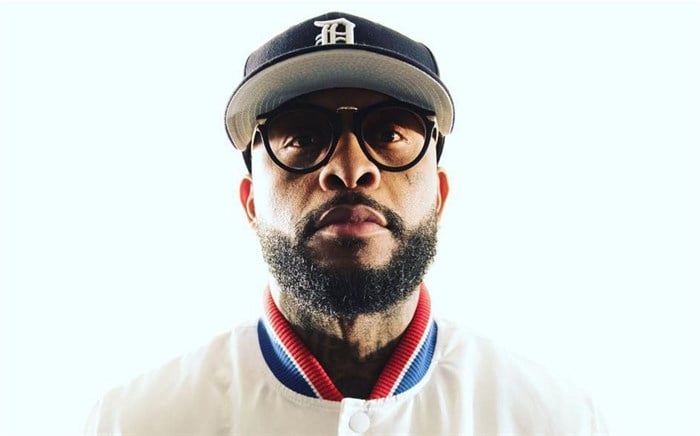
Top stories






More news





ESG & Sustainability
#Sona2026: President announces crisis committee to tackle SA's water challenges








As I write this I’ve just found out that celebrity chef and all-around television personality, Anthony Bourdain has committed suicide. Fashion designer Kate Spade also committed suicide recently. In the last few years, the world has lost Robin Williams, Chris Cornell, Chester Bennington, and many other people to suicide. I have lost two friends to suicide in the last two years.
When I was growing up most of the suicide stories on the news were people who were in debt or whose lives were ruined on a tragic Shakespearean scale. Depression, in its many forms, existed then too and many people who suffered from it did commit suicide but it wasn’t reported much and was surrounded by stigma. While there's still a stigma around depression and other forms of mental illness today, we’re moving forward and recognising it and talking about it.

Young people are dealing with a lot of things and, contrary to what older people believe, life is difficult. We're standing on the shoulders of giants like umama uWinnie Mandela and we're trying our best to build the sort of society they envisioned and fought for. The older generation was made of tougher stuff, the stuff of legends really, but they did sweep some issues under the ol' rug and we're trying deal with those issues today. After apartheid, we didn't have the tough conversations we needed to and that can be seen in the racism and inequality that still plague us and we're plagued by sexism and homophobia.
We're the generation that is starting to speak up about things like the sexual abuse that women have been dealing with and continue to deal with. Our Truth and Reconciliation Commision is taking people to task and having them take responsibility everywhere we can, whether it's on Twitter, in the workplace or our universities. We're trying to build a nation here and every topic, no matter how uncomfortable, is on the agenda. Depression is definitely on the agenda because we need to take care of our mental health as much as we take care of our physical health so that we can get on with the business of nation-building.
I've been listening to a lot of the new releases in popular music over the last months and I've noticed depression as a running theme with a lot of new albums, especially in hip-hop. J. Cole dropped KOD (Kids on Drugs, King OverDose or Kill Our Demons) in April and explores drug addiction in the music business and just in normal life as a result of modern society's pressures and depression. He goes on to recommend meditation over medication. The ever-controversial Kanye West has been seemingly losing his mind more than usual on Twitter making comments about slavery being a choice and praising a very problematic Trump. I've always been a fan of Ye's music because of its poignant tones of existential crisis. The dude was clearly busy in the studio whilst being crazy on Twitter, though, working on three projects: Pusha T's Daytona, his own Ye and his collaboration with Kid Cudi, Kids See Ghosts.
On the latter two projects, Kanye gets into his struggles with mental health (the text on the cover reads: I hate being Bi-Polar it's awesome) and Kid Cudi's struggles with depression and suicidal urges have been in the public sphere for years. In a 2014 interview Kid Cudi stated, "I’ve dealt with suicide for the past five years. There wasn’t a week or a day that didn’t go by where I was just like, ‘You know, I wanna check out.’ I know what that feels like, I know it comes from loneliness, I know it comes from not having self-worth, not loving yourself." He checked himself into rehabilitation for depression and suicidal urges in 2016.
What really got me thinking about depression and mental health more than I usually do, though, was Royce da 5'9"'s Book of Ryan. He has a song on there, Strong Friend, in which he explores depression and suicide in some detail, especially among friends we think of as strong. These strong friends are usually the ones that are hurting the most and are barely holding it together. They keep their pain to themselves because of the stigma associated with mental illness. He encourages people, especially black people, to seek out help and for us to check on our friends more and not to think they're okay because they look okay on the outside. At the end of the song he quotes other personalities (and himself) in the entertainment business who've committed suicide or addressed mental illness:
Depression and other mental illnesses are serious and we have to address them the same way in which we would a disease that afflicts our bodies. Life is difficult for young people and many of us are strong and it amazes me how so many of us overcome almost insurmountable challenges in the pursuit of our dreams. Young people hustle hard but we must also take care of ourselves and our friends. Instead of making it difficult for people who struggle with depression we should create an environment where people can come and talk to us about their struggles. I love how people are sharing information on job opportunities, information on where to get psychiatric help, ways for women to access safe abortion clinics or pretty much anything helpful on Twitter in the form of RT to save a life. That's exactly how we should look out for each other. Check up on your friends this #YouthMonth and beyond, even if they seem to be strong on the outside.
Check out The South African Depression and Anxiety Group (SADAG), they are SA’s largest Mental Health Advocacy Group.
You can find them on:
Twitter: @TheSADAG (RT to save a life), 0800 21 22 23 or 0800 12 13 14 (24Hrs) or sadag.org.
